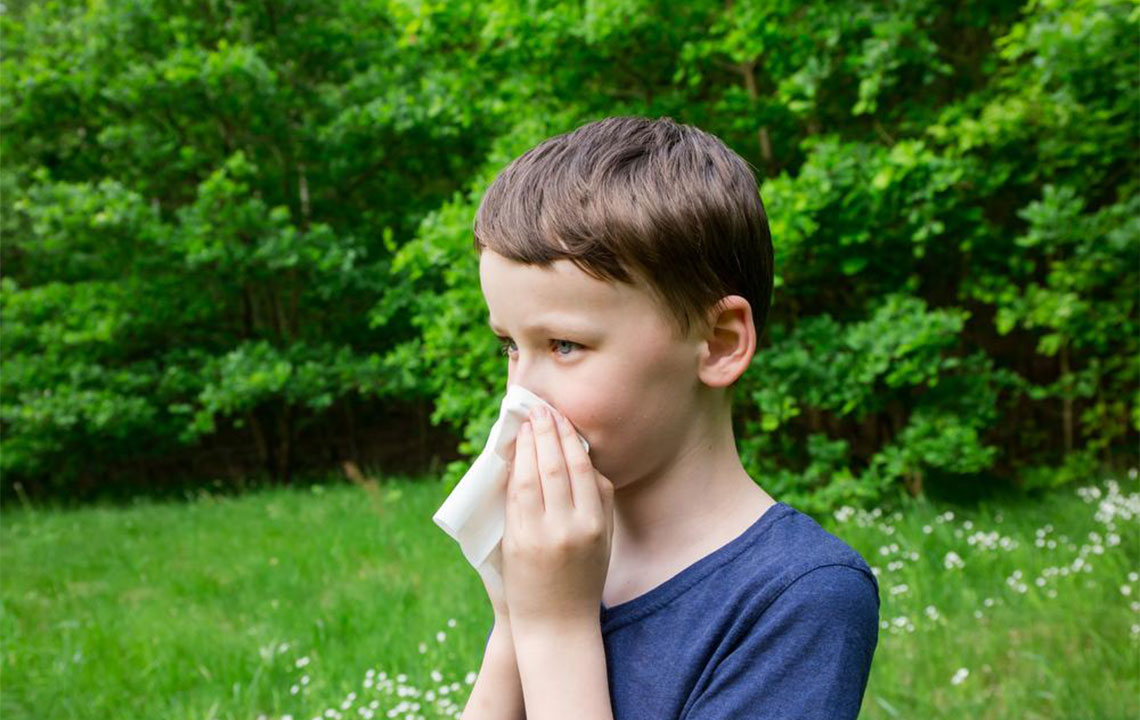The 8 Most Effective Medications for Managing Allergies Effectively
This comprehensive guide explores the top 8 allergy medications, detailing their uses, benefits, and precautions. Learn how to effectively manage allergy symptoms and prevent severe reactions with expert-approved treatments tailored to your needs.

Comprehensive Guide to the Top 8 Allergy Medications
Allergic reactions can be debilitating, manifesting in a variety of ways such as skin rashes, sneezing fits, itchy eyes, or breathing difficulties. Recognizing the symptoms early and choosing the right medication can significantly improve quality of life and prevent severe complications. Allergies occur when the immune system overreacts to normally harmless substances like pollen, dust mites, certain foods, or insect venom. These reactions are highly variable and can be seasonal or year-round, depending on the allergen involved. Effective management includes a combination of medications, lifestyle changes, and sometimes immunotherapy. In this extensive guide, we will explore the top 8 medications commonly used to treat different types of allergies, their mechanisms of action, appropriate usage, and potential side effects to help you make informed decisions about allergy relief.
Understanding Allergies and Their Impact
Allergies affect millions worldwide, impacting daily activities, sleep patterns, and overall health. They can present with mild symptoms like sneezing and nasal congestion or escalate to severe, life-threatening conditions such as anaphylaxis. Therefore, timely intervention is crucial. The most common allergens include pollen, pet dander, dust mites, mold spores, specific foods like nuts or shellfish, insect stings, and certain medications. Managing these allergies effectively involves targeted medication strategies tailored to individual needs and severity of symptoms.
Types of Allergy Medications
The arsenal of allergy medications is diverse, encompassing antihistamines, decongestants, corticosteroids, leukotriene receptor antagonists, and epinephrine injectors. Understanding how each class works allows patients and healthcare providers to choose the most appropriate treatment. Here, we will focus on the eight most popular and effective medications, detailing their benefits and limitations.
1. Allegra (Fexofenadine)
Allegra is a second-generation antihistamine known for its non-sedating properties. It effectively alleviates hay fever symptoms, nasal congestion, and skin rashes caused by allergic reactions. Fexofenadine works by blocking histamine receptors, preventing the cascade of allergy symptoms. Suitable for adults and children over six years old, Allegra provides up to 24 hours of relief with once-daily dosing. It's particularly favored for its minimal sedative effects, making it suitable for daytime use and for individuals who need to maintain alertness.
2. Benadryl (Diphenhydramine)
Benadryl is one of the oldest and most widely used antihistamines. It provides rapid relief from allergy symptoms such as sneezing, runny nose, and itching. However, due to its sedative effects, it is often recommended for nighttime use or short-term relief. Diphenhydramine works by crossing the blood-brain barrier and blocking central H1 receptors, which can cause drowsiness, dizziness, and dry mouth. It is also used in managing allergic reactions and anaphylaxis as part of emergency protocols, often combined with other medications.
3. Claritin (Loratadine)
Claritin is another non-sedating antihistamine that offers 24-hour symptom control. It effectively treats seasonal allergic rhinitis and urticaria (hives). Loratadine works similarly to Allegra by selectively inhibiting peripheral H1 receptors, hence minimal sedation. Its safety profile makes it suitable for long-term use and for individuals who require consistent allergy management without impairing daytime alertness.
4. Alavert
Alavert is the brand name for loratadine in an oral disintegrating tablet form, offering convenient administration, especially for children or adults with difficulty swallowing pills. It shares the same benefits as Claritin, providing nonsedating relief from allergy symptoms. The rapid dissolve feature allows for quick absorption, making it an effective choice for immediate symptom control.
5. Chlor-Trimeton (Chlorpheniramine)
Chlor-Trimeton is a first-generation antihistamine that has been used for decades. It is effective but has sedative properties comparable to Benadryl. It is suitable for rapid symptom relief but typically recommended for short-term or nocturnal use due to drowsiness. Chlorpheniramine works by blocking H1 receptors but can cause dry mouth, dizziness, and urinary retention in some patients.
6. Advil and Aleve (Ibuprofen and Naproxen)
While primarily non-steroidal anti-inflammatory drugs (NSAIDs) used for pain relief, both Advil (ibuprofen) and Aleve (naproxen) have shown some efficacy in reducing certain allergic symptoms, especially when inflammation contributes to congestion or pain. They are not standard allergy medications but may be used adjunctively under medical supervision for symptom relief associated with allergy-induced inflammation.
7. Boiron (Homeopathic Remedies)
Boiron offers a range of homeopathic products aimed at allergy symptom relief. While scientific evidence supporting their efficacy is limited, some individuals find them helpful as complementary therapies. These remedies are generally considered safe but should not replace conventional medications, especially in severe allergy cases.
8. Epinephrine Auto-Injectors (EpiPens)
In severe allergy cases, particularly anaphylaxis, epinephrine injectors are life-saving devices that rapidly counteract allergic reactions. They work by constricting blood vessels, relaxing airway muscles, and reversing swelling. Emergency preparedness with an epinephrine auto-injector is crucial for individuals with a history of severe allergic responses. Proper training and prompt use can prevent hospitalizations and fatalities.
Choosing the Right Medication
Optimal allergy management requires personalized treatment plans. Factors such as age, severity of symptoms, frequency of reactions, and presence of other health conditions influence medication choice. Consulting with a healthcare provider ensures safe and effective treatment, especially when combining drugs or managing chronic allergies.
Additional Tips for Allergy Relief
Identify and avoid known allergens whenever possible.
Maintain a clean environment to reduce dust and mold exposure.
Use air purifiers and humidifiers to improve indoor air quality.
Consider allergy immunotherapy if symptoms persist despite medication.
Follow medication instructions carefully and monitor for side effects.
Conclusion
Effective allergy management hinges on the correct choice of medications tailored to individual needs. From non-sedating antihistamines like Allegra and Claritin to emergency treatments like epinephrine, each medication plays a vital role in controlling symptoms and preventing severe reactions. Regular consultation with healthcare professionals ensures ongoing effectiveness and safety. By understanding the options available and implementing comprehensive allergy control strategies, sufferers can significantly improve their quality of life and enjoy allergy seasons with minimal discomfort.





